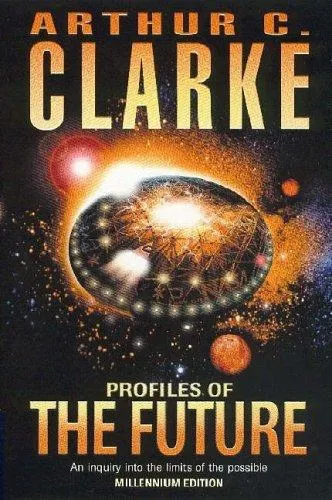3
mentions
mentions

First I would highly recommend Arthur C. Clarke’s “Profiles of the Future” (see my review on Goodreads). It’s a wonderful study of the science and art of predicting the future.
— Andrej Karpathy
2016-11 on quorasessionwithandrejkarpathy.quora.com
Arthur C. Clarke's "Profiles of the Future" is a fascinating exploration of the science and art of predicting the future in the context of science and technology. Clarke first studies predictions made in the past and tries to identify common mistakes and patterns. Armed with some takeaways he then focuses his intellect and imagination on charting future progress from 1960 (when the book was written!) to 2100. Reading the book in 2016 puts us approximately in the middle of this interval; Clarke gets some things right and some things wrong, but what's interesting are the trends in which the mispredictions occur and the humbling realization of just how difficult predicting the future is. In particular, it is very clear throughout the book that Clarke is swept up in the 1950's era of excitement. Physical sciences were being completely transformed: X-rays, general relativity, quantum theory, the Manhattan Project, the splitting of the atom, our conquering of the skies (despite many predictions to the contrary), the space race that just kicked off... This era colors many of Clarke's predictions, and is also the crux of most of his mispredictions. For how did the future unravel so far? Amazingly (and perhaps somewhat disappointingly) when you walk around the streets the world today looks pretty much the same way it did in 1960. All the innovation is in your pocket, and the vast digital universe we've built for ourselves, accessed by this new pocket appendage that we all possess. Clarke would probably be disappointed if we went back in time and told him that we'll land on Moon but then abandon it; that the space race will end and the space program will disintegrate; that the ISS is just barely avoiding a deorbit fate; that the speed of our passenger airplanes got stuck at ~500 mph; that no new amazing physical discoveries have been made (at least not on scale of proposed 4th dimension, or gravity manipulation). Instead we got the Internet, Google, iPhone/App Store, Bitcoin, Uber, Airbnb, Twitter/Facebook/Snapchat, AI. We don't have large, ambitious government projects, we have a thriving ecosystem of nimble startups. We don't _build_ *new* things, and when we do we do it is with bits, not atoms. This is why one of the most interesting chapters of the book (other than the introduction section)is "Voices from the Sky", where Clarke anticipates revolutions in communications enabled by satellites. He posits an "orbital newspaper", video conferencing, he sees the coming globalization. But he doesn't quite recognize the magnitude of the economic value of these technologies, compared to the value of a lunar base. He doesn't extrapolate enough and anticipate the sharing economy. To his credit, another great chapter is "The Obsolence of Man" which predicts the rise of AI, but Clarke does not volunteer too many details. Considered together, I think Clarke did poorly overall because he got the first order approximation of future developments wrong, attributing too high a weight and enthusiasm to the physical and not quite extrapolating enough the digital (but I would by no means wish to belittle his attempt). The interesting question is: What does the future look like 60 years from now? My takeaway of this book is that we should be extremely cautious to not get swept up in the craze of one era, extrapolating it widely and not accurately recognizing the economic value of some alternative paradigm. What might that be? Quantum computing? Nanotech? Biotech? AItech (hmm...)? Only Time will tell :) Strongly recommended book to anyone who likes to think about the future history of our species! And easy 5/5. 5/5
— Andrej Karpathy
2016-10-08 on goodreads.com
An excellent read on predicting the future
— Andrej Karpathy
2016-07-09 on twitter.com
https://twitter.com/karpathy/status/751878872866566145